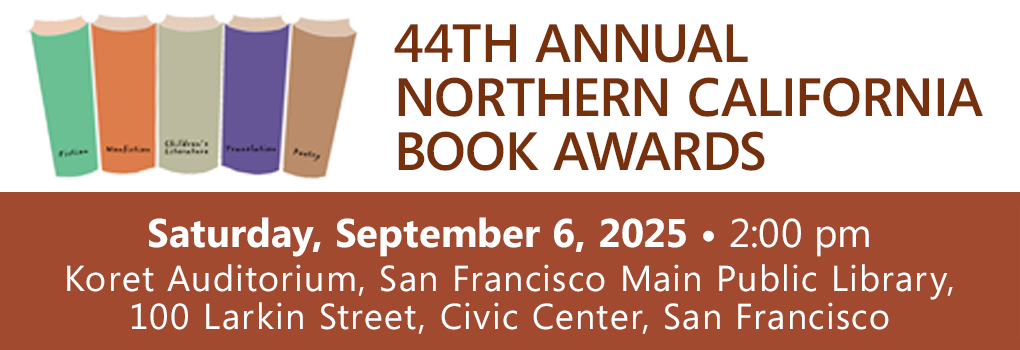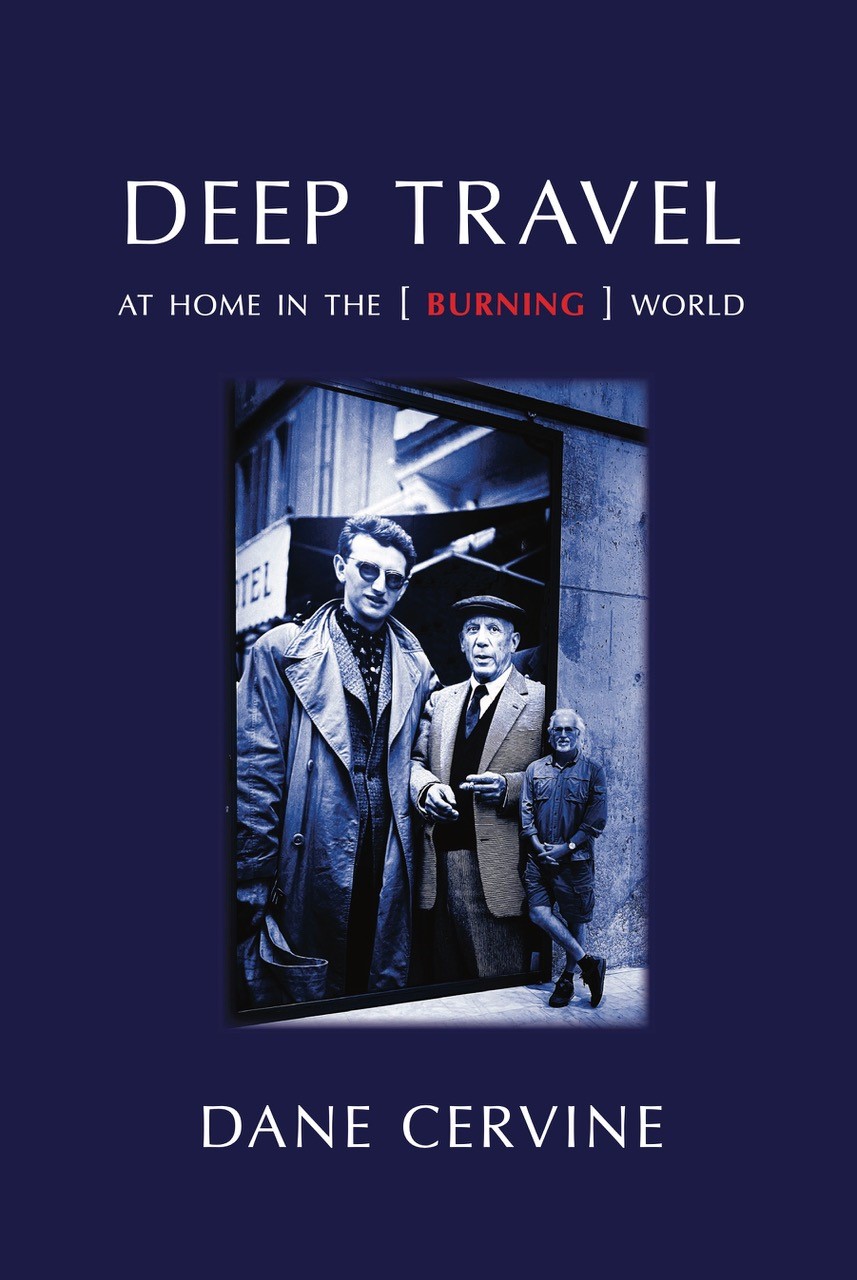
Durable Beauty
by Tom Goff
Frangible Opera: Poems, by Susan Kelly-DeWitt, Gunpowder Press, Santa Barbara, California, 2024, $18.00 paperback, 108 pages, gunpowderpress.com.
FOR COVER-TO-COVER EXCELLENCE and poetic urgency, Frangible Operas may be Susan Kelly-DeWitt's best-ever poetry collection. One gift I hadn't previously found a name for in Kelly-DeWitt's poetry is her sheer knack for arranging her poems attractively by book, and by sections within a book. A rather obvious thing to notice, you might say? True, but what strikes me is that, with several of her recent books arranged in whole or part as career retrospectives, Kelly-DeWitt is a master at envisioning gallery-like displays of her poems. Self-anthologizing, one might call it—a good thing, since that talent stems from her vast experience in publishing; also from her history as a working visual artist.
In her new book, Kelly-DeWitt's selection of previous poems on sobering or enlivening topics (e.g. aging and its diminishments; time spent tutoring and mentoring prison inmates; ekphrastic poems writ with scrupulous attention to visual and sculptural artworks and care for their makers) reads as freshly as if she'd just composed them, polished them, delivered them in yesterday's mail, though many items' inception may date decades back. This is an extraordinary accomplishment, indicating how previously known poems, recontextualized, assume new powers. Other, more recent items have been brought seamlessly into the mix. As one piece of evidence, a villanelle, subtly and effectively modified from strict rhyming form, merits full quotation:
To dust go the earrings and bracelets.
To smoke go the glamorous wrists.
Each noble earlobe, each Egyptian eye,
to smoke; to dust.
To dust go the motes, the specks of truth.
To dust go the earrings and bracelets.
To dust go the toenails, the shyness, the ruse
of hope; the silver curls, the high cheekbones.
Each noble earlobe, each Egyptian eye,
to erasure, to oblivion. To never go
the heartbeats, the miseries.
To dust go the earrings and bracelets.
To fire and smoke. To dust
go the compulsions, the aphasia, the obsessions.
Each noble earlobe, each Egyptian eye.
To dust, each eyelash. To flame,
the pelvic bones, the femurs, the ribs.
To dust go the earrings and bracelets.
Each noble earlobe, each Egyptian eye.
To dust.
("Elegy," page 82)
The reader, I think, can't fail to be moved by the word choices, encompassing both the tangible body components and the intangible mental processes lost; also the completely equal power of the two refrain lines. So fully in command is the poet that the sudden conversion of adverb to noun ("To never go") is instantly taken on faith. Though the poem stamps Egyptian imagery upon the mind, this one poem embraces, regrets, mourns, philosophizes on deaths and bodily disposals of all eras, on burial, cremation, and perhaps graveless, neglected decays also. It harks back to other undying poetic statements about death. I can think of a couple: Edna St. Vincent Millay's "Dirge Without Music" (which opens, "I am not resigned to the shutting away of loving hearts…") and a rarely-noticed Egyptian-themed gem, George Sterling's sonnet, "To the Mummy of the Lady Isis in the Bohemian Club, San Francisco" (with the lines, "Bitter with natron are the lips that kissed, / And shorn of dreams the spirit and the sight"). Kelly-DeWitt's poem can stand proudly alongside these.
Among the heart-rending verses of age-related suffering, one item in particular impresses me: "My Mother at the Museum of Bound Feet." This poem melds two kinds of suffering: first, the ancient abusive Chinese practice (discontinued fairly recently) of rendering women artificially dainty or "graceful" through bone-breaking, excruciatingly painful binding of girls' feet, such that the toes were typically forced to fold under footsoles—then, just imagine the lasting torture of walking, or enfeebled shuffling. Second, the speaker in the poem, possibly representing Kelly-DeWitt herself, is alongside her mother, who has suffered a debilitating stroke and visits the museum in a wheelchair.
I trust the unfailingly accurate reportage Kelly-DeWitt brings to her poems, yet I wanted to look up what and where a foot-binding museum might be. There is at least one such, the Wūzhèn Foot-Binding Museum, easy to locate online. Wherever the poem's museum might be, the binding designations ("Golden lotuses / like toddler booties— / "cranes for long life," / silvered wings where / bones were broken") are correctly named. But the poem's most wrenching lines are the concluding ones on the mother, who at best can only point at exhibits:
—She can't speak;
half-blind since
her stroke, she's often
confused; the nerves
on her right side
dead but: born in 1919,
a year before suffrage,
outrage
can still spark.
Everything she has
left tingles with it.
(page 18)
Another remarkable aspect of the poem: we're far removed from the world of the Elizabethan or Jacobean poets who could imbue a casual pun with oddly deep meaning or feeling. I don't know if the pun here is intentional, but we notice the mother's paralysis has afflicted her right side, so the words "Everything she has / left" can mean "every ounce of sensation remaining to her" or, conceivably, "every sensing faculty on her left side." Such wordplay may be a premeditated or accidental felicity. Certainly the directional enjambment "has / left" captures our attention. Anyone can identify with the speaker and the mother in the poem who has witnessed a beloved elder's steep decline in their last years.
I've noted how cohesive this collection is; it maintains a consistent autumnal or even wintry tone, but the aura that emanates from Frangible Operas is remarkably buoyant, much as Dana Gioia has remarked that genuine tragedy leaves the spectator or reader with a sense of uplift. Triumphant cadences help dispel whatever disquiet the reader may feel on first exposure to the poems' darker images or topics. Even in an era of visually enticing books, the book's cover (featuring Annie Spratt's photo of a downward-stemming blue flower against a variegated blue-green-gray background) harmonizes uncommonly well with Kelly-DeWitt's themes and motifs; just turn to the title prose poem and you'll sample that harmony. In the poem's concluding phrases, we
…hear only the flowers' blue chimes, their plangent xylophones, frangible operas.
Frangible means fragile, brittle, breakable, while operas (the word derives from a Latin term for works) can signify the musical experience, or any art form we may encounter. Many of us have a lingering recollection of some art-destroying incident—mine is of reading how Laszlo Toth smashed portions of Michelangelo's Pietá with a hammer—and all of us who create artworks tremble inwardly at their fragility; the fear also bespeaks our sense of mortality.
Among these frangible operas, the section devoted to ekphrastic poems handsomely displays Kelly-DeWitt's intense engagement with artworks in multiple media. One such poem is brief enough to quote entire:
It's my heart, antic bird—flying with wax
paper wings—too close to the sun's
skullcap of fire. Little black
tar shack.
Little singed
tongue,
still
singing—
("Bruegel: Landscape with the Fall of Icarus")
It's audacious for any poet to dare comparison with poems by W.H. Auden and William Carlos Williams on the same painting, but this poem works on its own terms; the poet presents her persona as a surrogate Icarus, or rather her heart as the too-high flyer, destined to fall as the heart can figuratively sink. Is the "Little black / tar shack" the tentative verse construction, spare to the verge of fragile or flimsy yet still standing, that partly blackens the page? Rather than distance us from Icarus—for Bruegel seemingly intends us to feel and confront the indifference the painted bystanders exhibit to the poor boy's splashdown—Kelly-DeWitt lets us locate and assess our inner Icaruses. Against this little opus, Auden's great philosophizing poem can appear preening and showoffish.
Repeatedly—never tediously—Kelly-DeWitt reminds us that our art is frangible, and we are breakable as well, and these poems dignify our vulnerabilities. We're even treated to a "shape" poem in the manner of George Herbert, "Old Family Goblet," clearly of frangible glass:
…Sometimes the cut-glass
face of betrayal shows up in it, as when one lives with
a perfect thing long enough to chip its shining
rim. (Think of all the lips it has touched!)
(I can't possibly reproduce here how well the visual goblet-shape embodies the message.)
But we also deflect our mortal fears with humor, and Susan Kelly-DeWitt's book offers that relief as well. From "Cold Call":
The shifty skeletons of the dead
are trying to sell us something:
the weight of the sky
on our chests…
Their wristwatches never stop,
their cars have infinite warranties,
their Hoovers suck up stars
and loneliness.
Have you ever heard the door-to-door
tongues of the dead
la-la-la-ing
from under the clean-swept
carpets of grass?
Skeletal salespersons equipped with Hoovers can surely leave grass carpets clean-swept, given how easily they vacuum up stars or feelings of loneliness. Our dead have limitless powers of teleportation too, as they and their machines can suck up dirt from beneath grass blades (were those "carpets" graves, or mere samples to be dirtied for demonstration purposes?). What's more, the image we met a while back, of "plangent xylophones," for me irresistibly calls up those creepy-jovial bone-rattling xylophones first made famous in Camille Saint-Saëns's Danse Macabre.
Finally, though I'm sure Kelly-DeWitt has an innate sense of humor—as the previous quoted lines demonstrate—I wonder how much further that humor may have developed under the poetical tutelage of Dennis Schmitz, touchingly memorialized in "Elegy for a Beloved Poet," which opens,
We gathered together in the night—
you with your tiger-eye; the night was
poetry. Your poems were skyscrapers—
the moon and stars shone down on them—
there was also a galaxy inside each window.
The poem is a traditional elegy, lilting, consistent in its gravely paced rhythms and commemorative approach, but I know Kelly-DeWitt can attest, as my wife Nora and I can, to Dennis's frequent sallies of whimsy, perfectly timed and delivered deadpan, whether in conversation or in his own poetry; could the Hoovering skeletons owe their comicality in part to Schmitz's influence? In "Elegy for a Beloved Poet," we can also remember how much we miss his unstinting support for the Sacramento poetry community and his espousing of social justice and anti-war causes.
Thus, when Kelly-DeWitt apostrophizes Schmitz and his poems in terms of galaxies and skyscrapers, she is on secure ground. It is awfully hard to conclude this assessment of Susan Kelly-DeWitt's newest collection—one wishes to just keep going. But, having mentioned her tribute to Dennis Schmitz, I'll say, as Dennis might have, that I'll keep returning to Frangible Operas and finding new favorites each time. In America's crowded field of poets ranging from capable to brilliant, Susan Kelly-DeWitt ranks among the very best at combating frangibility, achieving artworks of durable beauty. ![]()
Tom Goff is an instructional assistant in the Reading and Writing Center at Folsom Lake College. He's written five poetry chapbooks. His first full-length poetry collection, Twelve-Tone Row: Music in Words, was published in 2018. Tom won the Robinson Jeffers Tor House Prize for Poetry, 2021.
— posted October 2024







































 So Far So Good: Final Poems, 2014-2018
So Far So Good: Final Poems, 2014-2018  Abandoned Poems
Abandoned Poems 















 Mississippi
Mississippi 



















































































